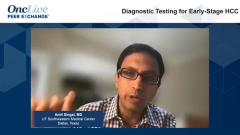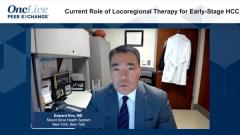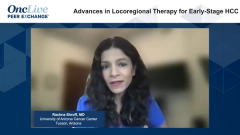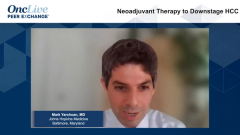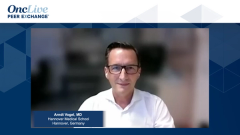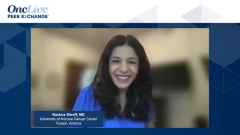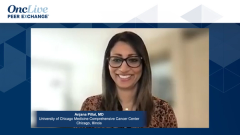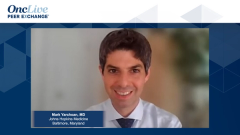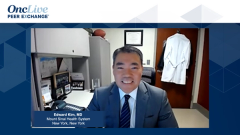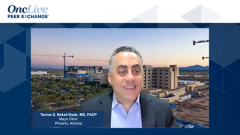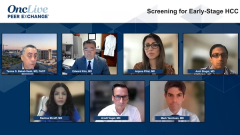
Selecting First-Line Therapy for Advanced HCC
An overview of factors that deem patients appropriate for atezolizumab/bevacizumab vs lenvatinib or sorafenib as frontline therapy for advanced hepatocellular carcinoma.
Episodes in this series

Tanios S. Bekaii-Saab, MD, FACP: Amit, is there a patient today who would be eligible, or would be preferably given lenvatinib or sorafenib in the frontline setting? Can you think about that patient?
Amit Singal, MD: Yes, Tony. We’ve talked about atezolizumab plus bevacizumab, there are a couple of things. The first is patients who have a higher risk of bleeding, so you do the endoscopy, you have a high risk of stigmata on the upper endoscopy. You may not be enthused about using bevacizumab, rightfully so, in that patient, and so using alternative agents, once again, we’ve talked about nivolumab monotherapy, but TKI [tyrosine kinase inhibitors] therapy in those patients is very reasonable. The second one is if people have contraindications to immune checkpoint inhibition, whether that’s significant autoimmune disease, post-transplant, clearly, anything that would be a contraindication to immune checkpoint inhibitors, TKI therapies are also very reasonable to use in that patient. Finally, we have to remember that right now, while we anticipate more real-world data coming out for atezolizumab plus bevacizumab over the next several years, we currently have data in a Child-Pugh A patient population with acceptable portal hypertension. We don’t have data in Child-Pugh B patients, we know these patients are at higher risk of bleeding. The trial excluded patients with a platelet count less than 75,000, so patients with significant portal hypertension are also at higher risk of GI [gastrointestinal] bleeding. Those are all patients who if they have Child-Pugh B disease, or significant portal hypertension, we do have an abundance of real-world data for some of the other agents, particularly sorafenib, given the fact that it has been around for a decade plus. Those are all patients where I would be more enthused about using TKI therapy than atezolizumab plus bevacizumab.
Tanios S. Bekaii-Saab, MD, FACP: Would you go with lenvatinib or sorafenib, as you said, which has more data at least in those select patient populations?
Amit Singal, MD: This is something that we’ve discussed several times ever since publication of the REFLECT trial. Overall, the survival is noninferior between the 2, but there are differences in terms of progression-free survival and objective responses. There are differences in terms of AEs [adverse events]. If there’s nothing in those factors that would drive you to choose one over the other, then the fact that you have greater real-world data in these Child-Pugh B patients and significant portal hypertension, you may feel more comfortable using sorafenib than lenvatinib, with the caveat that we are seeing more real-world data come out with lenvatinib as well.
Transcript Edited for Clarity


